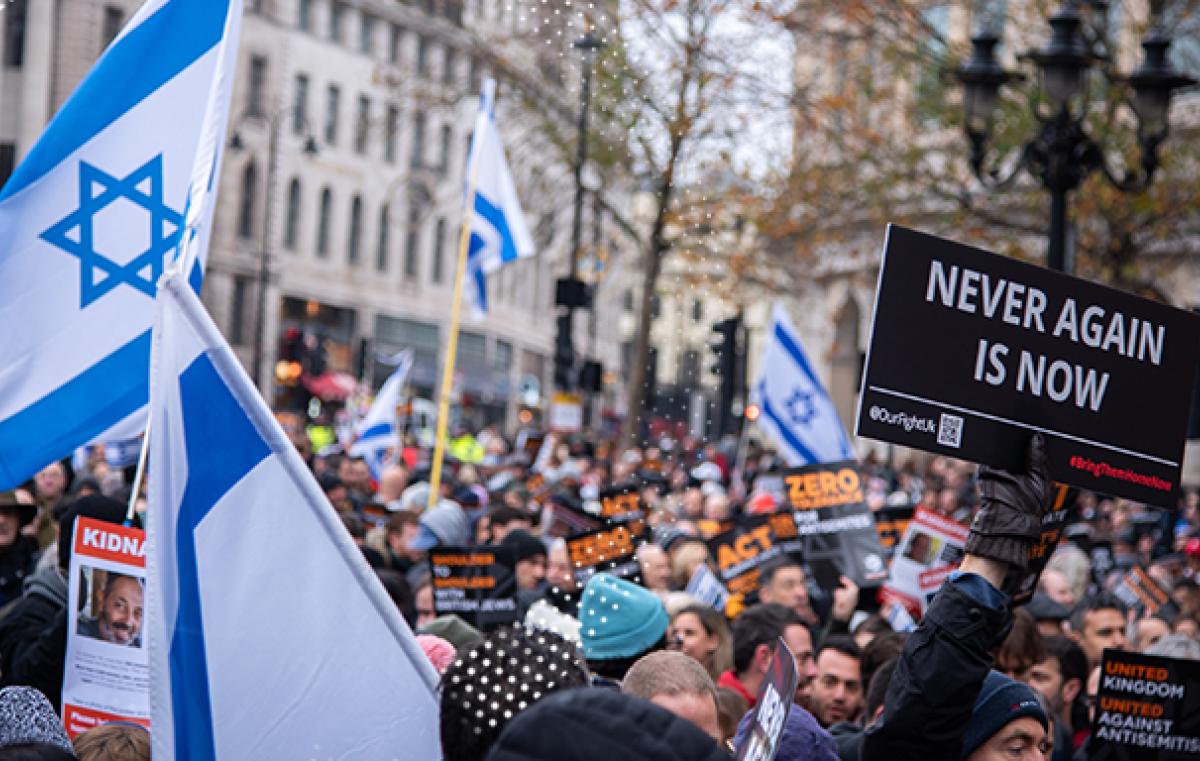Jewish Education Amidst Antisemitism
In light of the rise in global antisemitism, the Lookstein Center for Jewish Education at BIU has released a journal featuring insights and educational content reflecting upon the new situation and providing support

Following the atrocities of October 7th and surge in global antisemitism, the Lookstein Center for Jewish Education at Bar-Ilan University has released a new issue of its journal, the Jewish Educational Leadership. The new issue, titled “Jewish Education Amidst Rising Antisemitism”, features articles and videos from leading thinkers and activists in the field of antisemitism and Jewish education, such as Yossi Klein Halevi, Marc Baker, Bruce Powell, and more, as well as material previously published on the subject.
“The surge of hatred of Jews in the United States and abroad, from college campuses to workplaces to the streets of New York, Paris, London, Sydney, and so many other places, leaves us reeling with questions,” writes Rabbi Zvi Grumet, Ed.D., the Editor of the issue. “How did we get to a place where the Presidents of Harvard, Penn, and MIT speaking to a congressional committee could not say unequivocally that calling for the genocide of the Jews is considered harassment and violates campus rules?”
In a video interview, Shalom Hartman Institute senior fellow Yossi Klein Halevi discusses what he calls the phenomenon of massacre denial or trivialization. “What is happening to the understanding of October 7th is very similar to what the Holocaust memory has been subjected to in large parts of the world,” says Klein Halevi. “It begins with trivialization… and minimizing the atrocities, and then it moves on to comparing October 7th to the alleged number of Palestinian casualties. We have no idea how many Palestinians have been killed in Gaza, so playing the numbers game is another way of trivializing and downplaying the significance of October 7th.”
In a video addressing the aftermath of October 7th in Jewish communities around the world, Marc Baker, President and CEO of Combined Jewish Philanthropies of Greater Boston, says, “The whole world has changed. I feel like we’re at a historic moment for the Jewish people. This is one of the major dividers within the Jewish world today. Those who have never really known Jewish vulnerability and those who know and feel [it] deep in their kishkes. And I think that divide has been kind of blown up right now. We’ve known through the statistics that antisemitism has been on the rise for the last many years. And I think Pittsburgh, Tree of Life, really changed in some ways the American Jewish condition. It kind of woke us up to the fact that it can happen here.”
Part of the problem, according to Bruce Powell, Dean of the School for Jewish Education and Leadership at the American Jewish University, is that Jewish students aren’t equipped with enough knowledge of Jewish history to counter the detractors. “The most concerning thing I find about the uptick in antisemitism is the lack of knowledge on the part of Jewish students and others about the real history of the situation. The kids don’t know how to have a cogent debate. They don’t have the knowledge. They don’t have the history to truly stand up and speak truth to lies. And that actually is the most disturbing thing. If there’s violence, it’s obviously extremely disturbing. But I’m not as worried about that as the long term issues, both on college campuses and now on high school campuses, where the lack of knowledge and the level of ignorance is so profound that I think we are in a strategically dangerous spot with our youth who don’t know.”
“We need to help our students feel safe and supported, and we need to make sure they have some tools in their arsenal to rely upon,” said Chana German, Executive Director of The Lookstein Center for Jewish Education. The center has produced a series of videos, included in this Winter 2024 journal issue, to provide educators with a variety of tools for helping students through these troubling times. The videos, covering content from “How to cope with the emotional effects of antisemitism” to “How to recognize antisemitic tropes and why they matter” can be found on The Lookstein Center’s YouTube Channel.